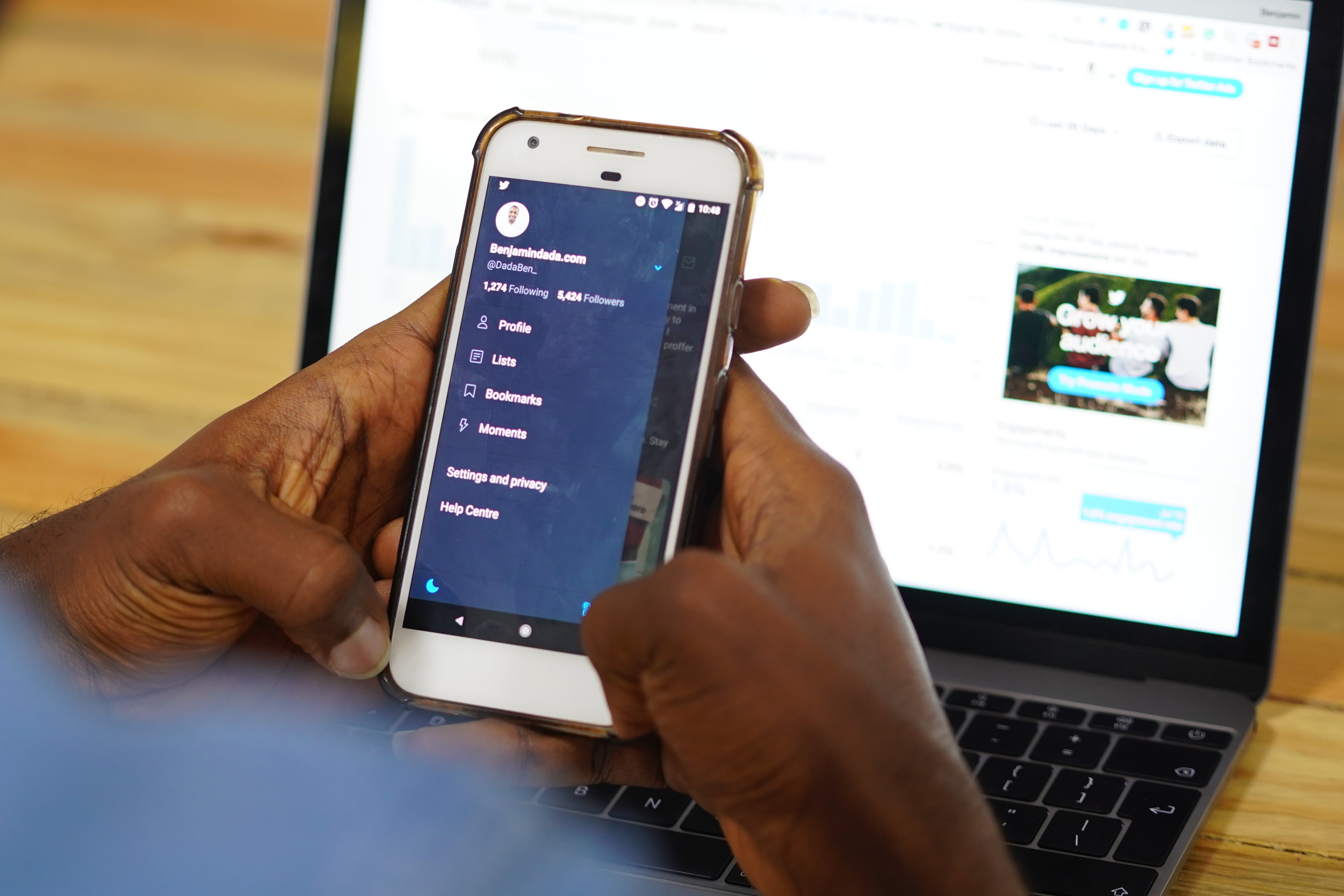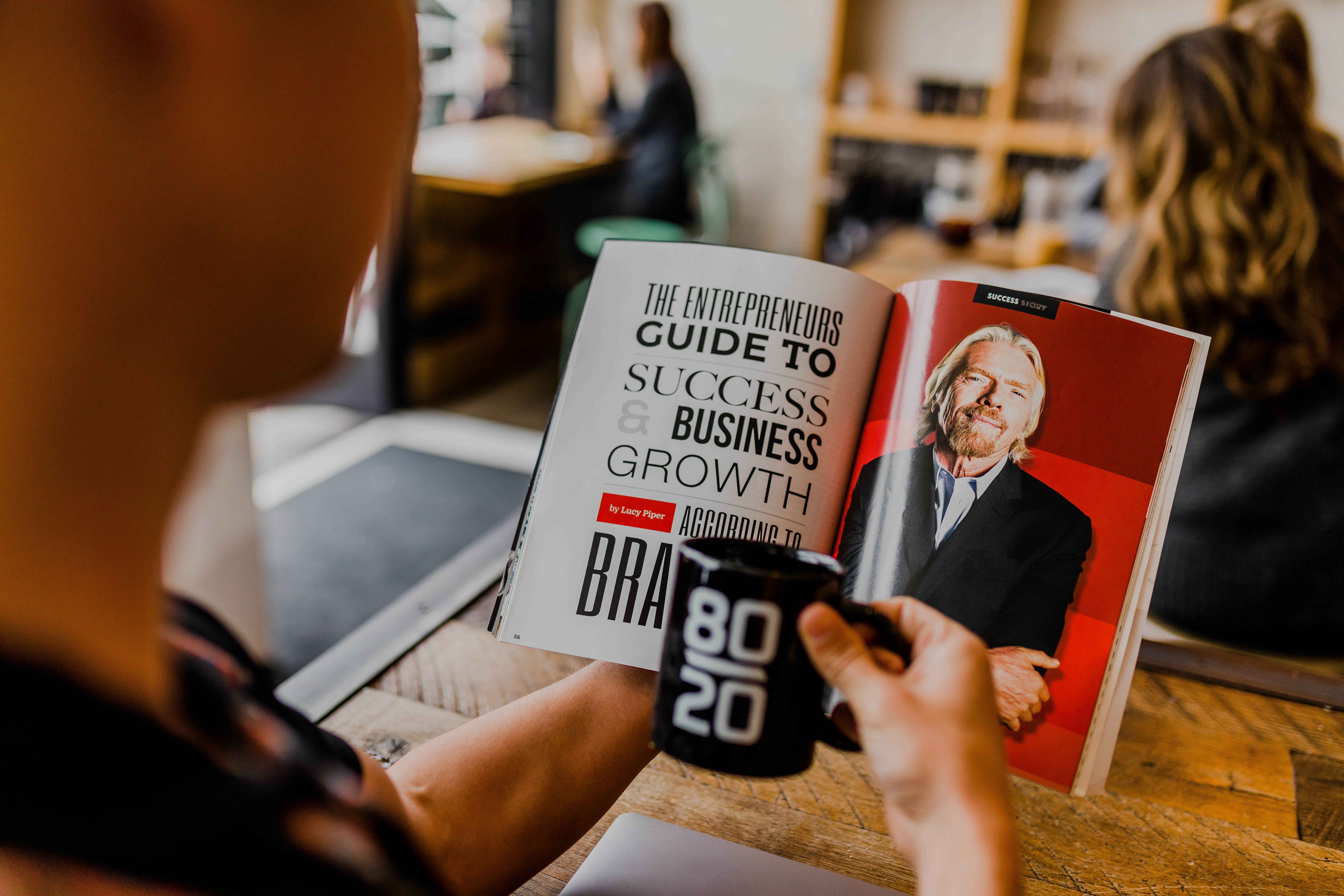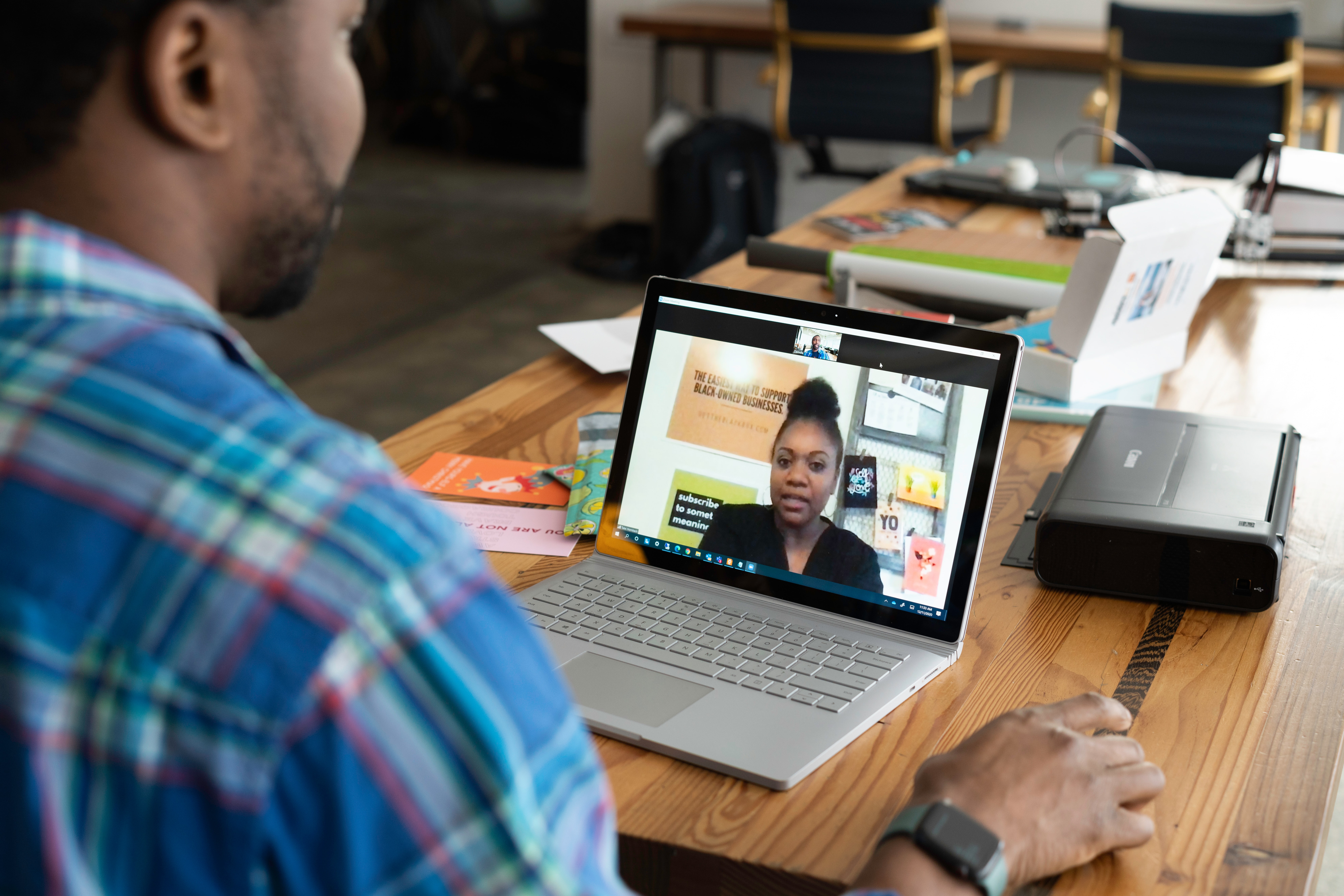
The Golden Age of Entrepreneurship
Breaking down the eight trends that have led to a golden age in Entrepreneurship, because there has never been a better time in history to start a business.
Today, I’m breaking down the eight trends that have led to a golden age in Entrepreneurship. There has never been a better time in history to start a business.
What's up, everyone? This is Alex Lieberman, Co-Founder and Executive Chairman of Morning Brew. Welcome back to Founder's Journal, my personal audio diary where I give you, the business builder, the tools you need to think better in order to build better, whether that's building a business, a team, or a new product. Today, I'm talking about The Golden Age of Entrepreneurship—we're livin’ in it. Simply, there has never been a better time in history to start a company, and it's so fricking exciting. Let's hop into it.
Last week, we had a special guest journal with Harley Finkelstein, the president of Shopify. Harley talked about his entrepreneurial story, how he got started at Shopify, and why it's such a great time to be an entrepreneur. The episode left me inspired to go deeper into the state of entrepreneurship and why it is that there has never been a better time in the history of humankind to start a business. So what I'm going to do is lay out eight trends that I believe have thrust entrepreneurship into prosperity.
Reason #1: Cost of Failure is Close to Zero
Reason number one: the cost of failure is as close to zero as it's ever been. This is the one that Harley focused on in our guest journal. He used the example of his grandpa emigrating from Eastern Europe to illustrate what the cost of entrepreneurship used to be. Harley's grandpa immigrated from Hungary to Canada in 1956, he didn't speak a lick of English, and he didn't have any money. He needed money to put food on the table, so he decided to sell eggs at a local farmer's market in Montreal—that egg stand is still there today and it's run by Harley's uncle. But to start that egg stand, Harley's grandpa basically had to mortgage his life. He had to take out a bunch of high interest debt, he had to remortgage home...a lot of things had to be done to afford this simple egg stand business. And if it failed, he lost everything: his house, his credit, his way of providing for his family.
Today, that looks completely different if you're starting a business. Take Morning Brew, for example. In 2015, my co-founder Austin and I started Morning Brew for less than $1,000. We had a $50 filing fee in Michigan for starting an LLC, $100 for the domain MorningBrewDaily.com, $10 a month for website hosting and $100 a month for MailChimp, what we use to send our emails. That is it. And with tools like Shopify, Substack, MailChimp, Etsy, Patreon, Kickstarter, and all of these different creator platforms, the cost of failure in business today is really, really low.
Reason #2: There are Many Sources of Capital 
Reason number two: there are more sources of capital for entrepreneurs than ever before. You have venture capital, which is raising money from professional institutions that focus on early stage companies; you have angel investors, where you're raising money from professional individuals that focus on early stage companies; you have crowdfunding, a newer phenomenon where you go on Kickstarter or StartEngine or SeeInvest, and you raise from tons of individuals; you have a grant and low interest loan programs like SBA program by the federal government; you have accelerators and incubators like Y Combinator, which invest a $150,000 into your business in exchange for 7%, or things like Techstars; and then you also have secondary market selling, where you can sell equity in the mid or later stages of your company.
On top of all these avenues for capital, you also have regulation that has recently occurred, that's opening up more investment dollars from traditional retail investors, not just the ultra wealthy. So for example, you have something like Reg A, which is a law that allows non-accredited investors to invest up to 10% of their net worth or annual income in startups. And then you have Reg CF, which is the crowdfunding law that allows companies to raise up to $5 million from all Americans, not just accredited investors. More capital sources means more options for entrepreneurs to fund their businesses, which creates more flexibility in when you can start your business and who you decide to take money from. That's reason number two.
Reason #3: Cost of Testing an Idea is Low

Reason number three: the cost to test an idea has never been lower. Back in the day, before social media and the internet, you had to operate based on intuition and anecdotal information. When you started a business, or if you really wanted to survey customers before starting, it would have been super manual or very costly. Today, you have a 24/7 focus group that will tell you what they think about your idea instantly. That's what social media and other internet tools have offered us. It's not just about community connection and building an audience on social anymore. Social media is about having prospective customers in front of you at all times. Have an idea to start this crazy thing like Uber for haircuts? Tweet about it, and get replies about the viability of your idea. Want to understand if something is a pain point for a lot of people? Post a question on Quora, and see what people say.
What that means is, this idea of taking a leap of faith into entrepreneurship is getting smaller and smaller. You no longer have to just rely on faith. Sure, you're taking a leap if you're leaving a comfortable, corporate job for a startup, but it's a more calculated leap than ever before. Here's a quick example for you. A few months back, I posted on Twitter, asking, "Anyone want to form a learning group to read, reflect and discuss all of Amazon shareholder letters?" That's a simple question and that simple tweet got 4,800 likes and 1100 responses. This tweet told me there was appetite. Now I no longer had to worry about if there was demand for this type of learning community. And then I took it a step further and sent a type form to all of the people who engaged with my tweet to better understand who they are, why they're interested in a learning community around Amazon, and how much they'd pay to be a part of it.Think about that. Simply by using Twitter and type form, I could have significant conviction and an entirely new business idea that I could start tomorrow.
Reason #4: Communities for Founders 
Reason number four that entrepreneurship is in a Golden Age: there has never been a greater number of communities for founders. You've heard me talk about it in past episodes, but the entrepreneurial journey can be lonely and isolative. Even if you have co-founders. I've felt imposter syndrome throughout my journey, I've felt anxiety throughout my journey. Having a group of people who understand what you're going through because they've been through it themselves is invaluable.
And it's not just invaluable for the emotional journey—it's also an insurance policy for the mental journey. As an entrepreneur, no matter how hard you try to look into the future and see around corners, you will always have blind spots. It's par for the course. If you surround yourself with entrepreneurs who have reached a stage of business that's two or three steps ahead of where you are today, or if you connect with domain experts who know about industries or areas of business where you're less knowledgeable, your risk of failure by definition comes down to a ton, because you've surrounded yourself with people that diffuse business landmines that you weren't aware of.
The way you find these people is becoming part of communities. And thanks to the internet, social media and platforms like Slack or Discord, it is easier for communities to form than ever before. So you have everything from start-up Twitter, too. The “entrepreneur” subreddit to Indie Hackers to Product Hunt. Community for builders is at an all-time high.
Reason #5: Business Playbooks
Reason number five: we're in The Golden Age of entrepreneurship: the quantity of playbooks has never been higher. Let me explain. A concept that's often talked about in the startup and investing world is this idea of leverage. Leverage is about getting more from less: getting more return from less of your money, getting more results from less effort. Well, over the years, as entrepreneurship and venture capital has risen, I believe that venture capitalists and serial entrepreneurs have created business playbooks as a way of creating greater leverage through learned experiences in business.
There have been playbooks created for scaling your business things like OKRs by Andy Grove at Intel or EOS by Gino Wickman, which we use at Morning Brew. There've been playbooks created for scaling sales orgs, for building B2B SAS businesses, for raising your series. A and if the business playbooks that have been created were the kindling for entrepreneurs to start their own fire, social media has fan the flames by allowing thousands of VCs entrepreneurs and business minds to communicate their playbooks publicly to the world.
Now, while playbooks aren't perfect, having a recipe from similar and proven businesses is absolutely a risk mitigant that makes starting a business today less daunting than it was 10 years ago.
Reason #6: Talent Pools are 10X Bigger
Reason number six: talent pools are 10X bigger than ever before. First, we all have completely changed how we think about talent. Pre COVID, most entrepreneurs thought about remote work or hybrid work as a last resort. Today, it is the default choice. Take Morning Brew, for example. For the longest time, we thought about work in this antiquated way. We literally had a hundred percent of our team full time and in person, and we only just started talking about having some of our sales team be remote in order to be close to Midwest or West Coast clients. Obviously the pandemic forced our hand, and we completely changed how we think about talent.
And with that changed mindset, not just Morning Brew, but most companies have experienced these last 16 months, we went from having a talent pool that was defined by the population of basically anyone within a two hour driving distance to our office, to now anyone who lives on planet earth. Just think about how much your odds of success go up when you have a thousand X year talent pool.
But the other piece of what makes access to talent at an unprecedented level is how technology has amplified communication and collaboration. Businesses like Zoom and Slack had been created in the last 10 years, and they reached mass relevance way sooner than that. These tools have become the lifeblood of distributed work communication. Even if we had access to a global talent pool, if we didn't have these tools, the way we work today would not be possible.
Reason #7: No-Code Tools

Reason #8: Consumers’ Willingness to Test
The eighth and final reason that entrepreneurship is in a Golden Age: consumers are willing to test more than ever before. First there's a psychological barrier that our parents' generation had that we do not. They were skeptical any time the ad to give credit card information to someone they didn't know. Today, we'll enter our credit card number, willy nilly, and in many cases, our devices just autofill for us. Second, there's been technical improvement for testing. The addition of things on Amazon, like one-click checkout have lowered the friction to test and try to as close to zero as ever before. Now, if you want to try something, it's literally go to Amazon.com, search an item, one-click checkout, receive your item. The third is that business models now support trying. Retailers like Amazon have made returning purchases quick and painless, which has made trying and testing something way easier to get over the mental hurdle of, and in the world of software freemium models with a 30-day trials have become the tried and true strategy for getting customers to put down their credit cards and take a product for a spin.
TL;DR
Those eight reasons are why I believe entrepreneurship is in a Golden Age and is why I believe you will see more startups and small businesses created at a faster rate than ever before. So just to recap: the cost to start a business is lower than ever before; access to capital is higher than ever before; you can test ideas in an easier, cheaper fashion than ever before; we've seen a proliferation of startup communities with social media platforms on the internet; there are a playbooks that have been created for building businesses, thanks to serial entrepreneurs and venture capitalists; talent pools have 10Xed as our perception of being able to work remote has become the default, not the last resort option; no-code has created tons of options for non-technical founders like myself to build businesses; and consumers have become predisposed to testing new things like never before.
I Want to Hear From You
Now, I want to hear from you. If you've thought about starting a business or side project, what has prevented you, given all of the positive trends that I just described that are just begging you to take the leap, to do your own thing? Send me an email to alex@morningbrew.com or DM me on Twitter @BusinessBarista. I'll get back to you as soon as I can. As always thank you so much for listening to Founder's Journal. And if you enjoyed, please let others know who you think would enjoy the show as well. Thanks again. And I'll catch you next episode.









